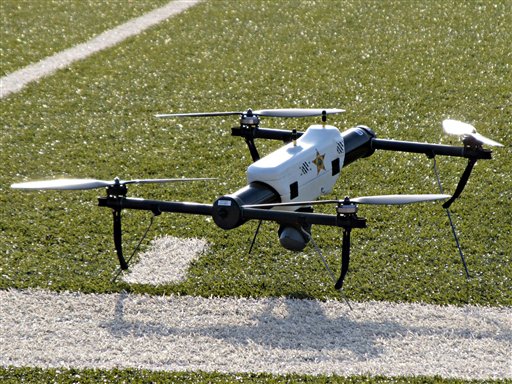Read moreFlying in the 'Wild, Wild West': Drone regulations still unclear to Chattanooga companies (with video)
Drones are aircraft and therefore should be regulated by the Federal Aviation Administration, the National Transportation Safety Board said this week in its long-awaited decision on a 2011 drone incident at the University of Virginia involving Raphael Pirker.
Pirker was cited by the FAA and fined $10,000 for operating a small, Ritewing Zephyr unmanned aircraft in a "careless or reckless" manner when he shot aerial photography for a third-party marketing firm as part of an agreement with the University of Virginia.
The FAA claims Pirker flew his drone too close to people, through a tunnel with people inside, only 10 feet above ground and up to 1,500 feet above ground.
The FAA claims Pirker flew his drone "directly towards an individual standing on a ... sidewalk causing the individual to take immediate evasive maneuvers so as to avoid being struck by [the] aircraft," according to court documents.
Pirker responded that the FAA doesn't have the authority to regulate drone use because there aren't clear definitions in place whether drones, or unmanned aircraft in general, are subject to existing aircraft regulations.
A lower court judge agreed with Pirker and was ready to dismiss the FAA's complaint, but the FAA filed an appeal earlier this year to have the decision reviewed.
On Tuesday, the FAA's appeal was validated, as the NTSB ruled that existing definitions of aircraft are "clear" and "unambiguous," and that there is no language exempting unmanned aircraft, model aircraft included, from FAA regulation.
The complaint against Pirker now returns to the lower court, where a judge must decide whether Pirker was actually operating his drone in a reckless manner.
But the NTSB decision has many implications for drone users across the country.
Until now, there has been confusion about drone regulations and how or when drone use is permitted.
Scott Shaw, attorney at Evans Harrison Hackett PLLC in Chattanooga, said U.S. drone regulations are unclear and have resulted in confusion.
But he said Wednesday that the NTSB ruling is "now the only binding decision on the issue," and it "puts a pretty solid lid on anyone considering using drones commercially."
For that reason, the NTSB decision is considered a step backward for advocates of commercial drone use.
"I think at this point no one can operate a commercial drone and argue that the FAA regulations are inapplicable because the UAV is a 'model aircraft,'" Shaw said.
The FAA isn't expected to release extensive new unmanned aircraft regulations until September of next year. In the mean time, Shaw said the NTSB decision should have drone users thinking twice before flying.
Contact staff writer Alex Green at agreen@timesfreepress.com or 423-757-6480.

